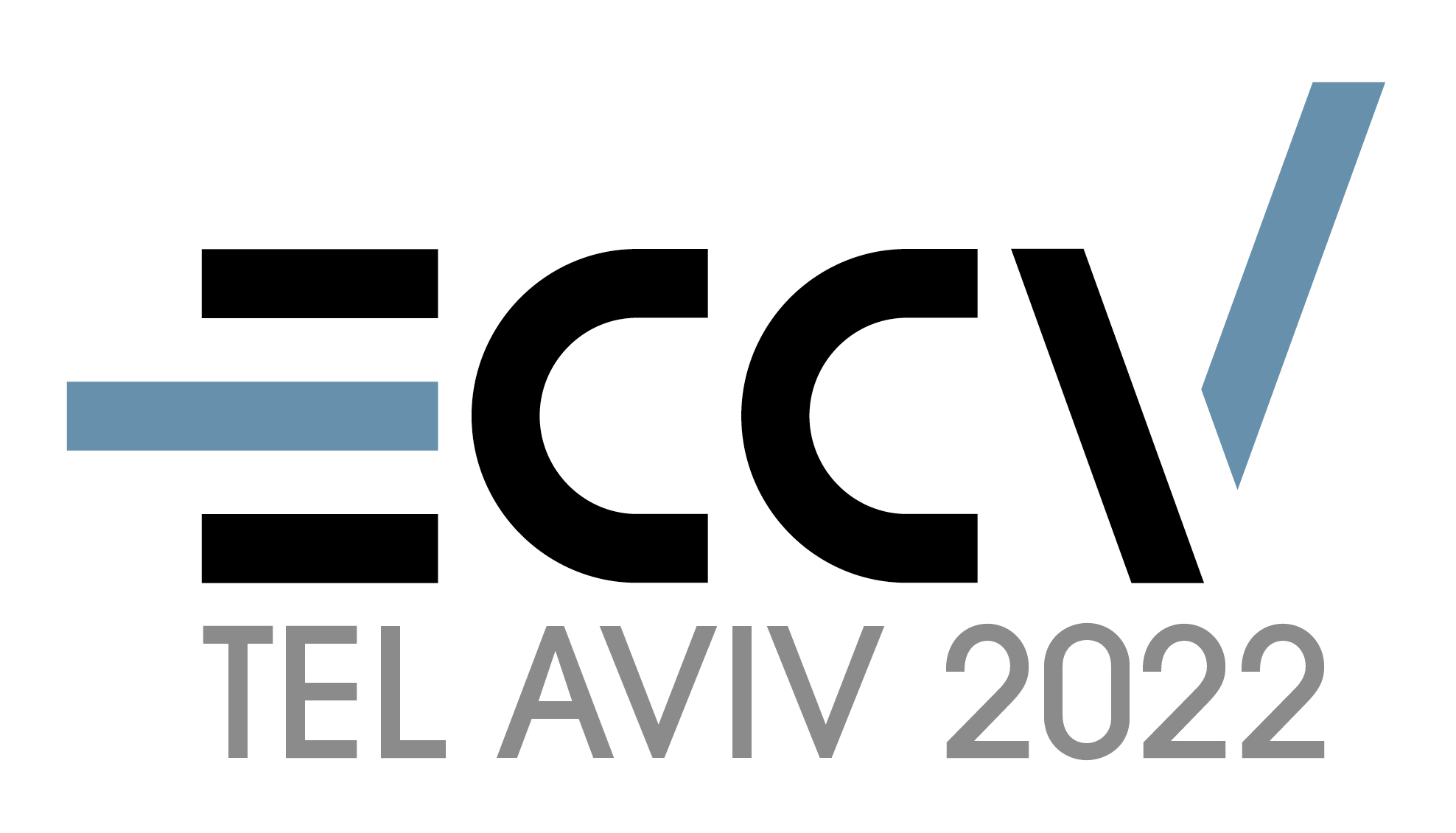Important Dates
Submission Deadline: May 15, 2022
Notification of acceptance by: July 1, 2022
Tutorial web page on-line: August 10th, 2022
Tutorial dates: Sunday October 23, 2022 and Monday October 24, 2022
Venue
Tel-Aviv, Israel
Please note, due to the COVID-19 pandemic, ECCV 2022 will be held most likely in hybrid form. Tutorial proposers should indicate in their application whether they would like to hold their tutorial in physical or remote form. Tutorial proposers should also be well prepared for the case that ECCV 2022 is a completely remote event.
Call for Tutorials
We would like to solicit proposals for tutorials to be held in conjunction with the European Conference on Computer Vision (ECCV 2022) in Tel-Aviv, Israel. ECCV tutorials aim to provide a comprehensive overview of specific topics in computer vision. The topic should be of sufficient relevance with respect to the state-of-the-art and the course should be educational rather than a cursory survey of techniques. An ideal tutorial has a clear theme and builds a story, and even if multiple presenters are planned, has unified notation (across presenters) and cohesive narrative. The audience for ECCV tutorials consists of graduate students in computer vision as well as practitioners from different fields. Regular courses will have a half-day duration (3-4 hours). We also invite proposals for full-day courses (5-7 hours), provided that the topic merits the additional time that can be anticipated to generate sufficient interest from our community. Brief tutorials (1.5-2 hours) are also welcome, which will have a seminar-like style and
preferably address hot, yet less consolidated, topics. Whichever the tutorial length, as ECCV increases in popularity, we will select (see below the criteria) only proposals of the highest quality and contribution. Based on the quality of the presented tutorials, a selection of tutorial presenters may be invited to submit extended tutorial materials for publication in Foundations & Trends in Computer Graphics and Vision (electronic issue only). In order to improve diversity in materials/topics, the organizers may also propose that submitters shorten their tutorials (e.g., from half-day to brief).
Submission
Proposals should be submitted by email to the Chairs* tutorialschairs@ecva.net either in PDF format (preferred) or plain-text by May 15 2022. The tutorial description must not exceed 3 A4 pages (all inclusive). Proposals failing to comply with the guidelines will be desk rejected. All proposals must include, in this order, the following information:
- Short course/tutorial title
- Proposers’ names, titles, affiliations and primary contact email
- Short bio for each organizer, including pointers to relevant publications and any prior tutorial/educational experience
- Preference for brief, half-day or full-day event and indicative breakdown of day (brief tutorials will be preferably accommodated on the post-conference day)
- Indicate whether you would like to hold the tutorial in physical or remote form
- Course description that includes topics that will be covered along with a short outline
- Anticipated target audience (introductory, intermediate, advanced) as well as expected number of attendees
- Description of how this proposal relates to previous tutorials/short courses appearing at CVPR / ICCV / ECCV and other international vision conferences in the previous three years
- Planned materials (if any) to be distributed to attendees
* If you did not hear back from the tutorial organizers within one working day, please contact the tutorial organizers directly.
Evaluation Criteria
- Educational value, interest and relevance. We encourage topics and scope that have high educational value, of broad interest to the community and can inspire further research activities. A good tutorial should not simply be a survey of the presenters’ own works. We would like to see tutorials on interesting and heterogeneous topics at ECCV 2022, and thus may require high-quality proposals with overlapping topics to merge. Please state your willingness to explore combining your tutorial with other tutorials, if recommended by the Tutorial Chairs. Organizers from proposals who are asked to merge should work together to decide the final schedule. We welcome proposals on emerging technical areas, societal and ethical implications of computer vision, and also topics that may not be seen as “traditional” in the computer vision community. The topics should not have been covered extensively in recent major computer vision conferences, unless there are strong reasons to continue educating the community on the topics (e.g., useful theory or method that is evolving/improving rapidly).
- Track record and expertise of organizers/speakers.The presenters/speakers should have representative publications on the proposed topics, and experience in giving tutorials with high educational value.
- Diversity in the organizing team and speakers. We encourage diversity in the organizing teams and speakers in all aspects, including gender, race, affiliation, geography, seniority, and perspective (e.g., advocates vs critics, academia vs industry).
Tutorial Logistics
Tutorial organizers are responsible for the scientific organization and advertising of the event and the definition of the Tutorial program. An elementary website describing the tutorial must be online by August 10, 2022. Logistic (e.g. coffee breaks, AV) and financial aspects (e.g. registration) are handled by the ECCV 2022 organization. All other activities with budget implications are the responsibility of tutorial organizers (e.g., extra breaks, social functions, travel grants). Tutorial registration will follow the passport system: ECCV attendees will register for tutorials through the ECCV conference registration form.
Tutorial Chairs
Natalia Neverova, Facebook AI Research (FAIR)
Thomas Pock, Graz University of Technology
Contact: tutorialschairs@ecva.net
